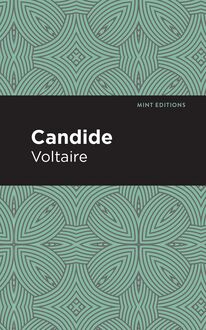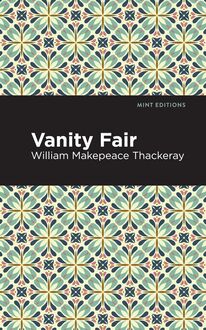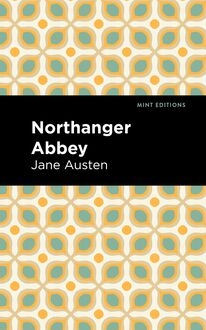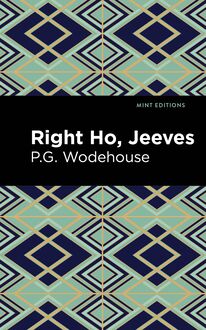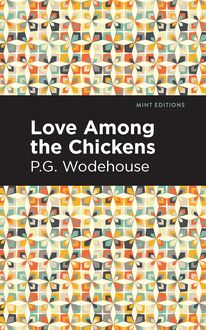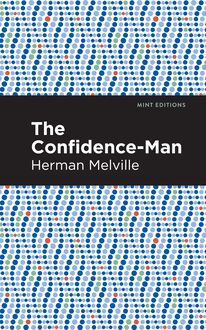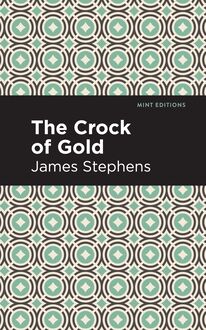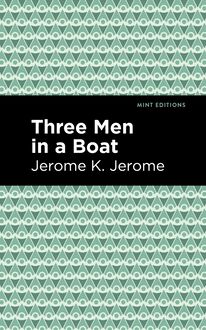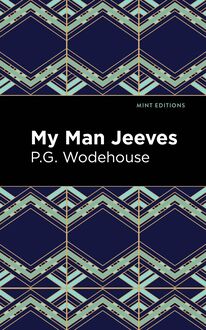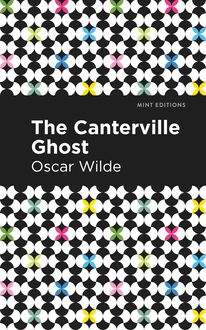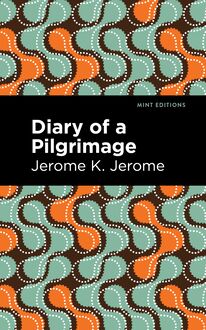-
 Univers
Univers
-
 Ebooks
Ebooks
-
 Livres audio
Livres audio
-
 Presse
Presse
-
 Podcasts
Podcasts
-
 BD
BD
-
 Documents
Documents
-
- Cours
- Révisions
- Ressources pédagogiques
- Sciences de l’éducation
- Manuels scolaires
- Langues
- Travaux de classe
- Annales de BEP
- Etudes supérieures
- Maternelle et primaire
- Fiches de lecture
- Orientation scolaire
- Méthodologie
- Corrigés de devoir
- Annales d’examens et concours
- Annales du bac
- Annales du brevet
- Rapports de stage
La lecture à portée de main

Vous pourrez modifier la taille du texte de cet ouvrage
Découvre YouScribe en t'inscrivant gratuitement
Je m'inscrisDécouvre YouScribe en t'inscrivant gratuitement
Je m'inscrisEn savoir plus
Vous pourrez modifier la taille du texte de cet ouvrage
En savoir plus

Description
Crome Yellow (1921) is a novel by English author Aldous Huxley. Inspired by his stay at Garsington Manor with members of the Bloomsbury Group, Crome Yellow, Huxley’s debut novel, satirizes the society of England’s intellectual and political elite. In addition to its autobiographical content, the novel investigates such themes as spirituality, the nature and composition of art, and the fear of a dystopian future.
Invited to spend part of the summer at Crome, a country estate owned by Priscilla and Henry Wimbush, Denis Stone arrives by train carrying a draft of his first novel, which he intends to complete during his stay. There, he is introduced as a poet, and quickly falls in love with the young Anne Wimbush, herself enthralled with the painter Gombauld. Faced with disillusionment and disappointment, Stone struggles to write while being subjected to pseudointellectual conversations, lengthy public readings, and devastating characterizations by the guests and hosts of Crome. Memorable characters include Mary Bracegirdle, an adventurous and amorous flapper; Mr. Barbecue-Smith, a hack writer; and Mr. Scogan, a doomsayer with an elaborate dystopian vision. Crome Yellow, a biting work of satire, has earned comparisons to The Great Gatsby continues to be recognized as an important early work from one of England’s most visionary writers.
With a beautifully designed cover and professionally typeset manuscript, this edition of Aldous Huxley’s Crome Yellow is a classic of English literature reimagined for modern readers.
Sujets
Informations
| Publié par | Mint Editions |
| Date de parution | 16 février 2021 |
| Nombre de lectures | 0 |
| EAN13 | 9781513284576 |
| Langue | English |
| Poids de l'ouvrage | 1 Mo |
Informations légales : prix de location à la page 0,0450€. Cette information est donnée uniquement à titre indicatif conformément à la législation en vigueur.
Extrait
Crome Yellow
Aldous Huxley
Crome Yellow was first published in 1921.
This edition published by Mint Editions 2021.
ISBN 9781513279558 | E-ISBN 9781513284576
Published by Mint Editions ®
minteditionbooks.com
Publishing Director: Jennifer Newens
Design & Production: Rachel Lopez Metzger
Project Manager: Micaela Clark
Typesetting: Westchester Publishing Services
C ONTENTS I II III IV V VI VII VIII IX X XI XII XIII XIV XV XVI XVII XVIII XIX XX XXI XXII XXIII XXIV XXV XXVI XXVII XXVIII XXIX XXX
I
A long this particular stretch of line no express had ever passed. All the trains—the few that there were—stopped at all the stations. Denis knew the names of those stations by heart. Bole, Tritton, Spavin Delawarr, Knipswich for Timpany, West Bowlby, and, finally, Camlet-on-the-Water. Camlet was where he always got out, leaving the train to creep indolently onward, goodness only knew whither, into the green heart of England.
They were snorting out of West Bowlby now. It was the next station, thank Heaven. Denis took his chattels off the rack and piled them neatly in the corner opposite his own. A futile proceeding. But one must have something to do. When he had finished, he sank back into his seat and closed his eyes. It was extremely hot.
Oh, this journey! It was two hours cut clean out of his life; two hours in which he might have done so much, so much—written the perfect poem, for example, or read the one illuminating book. Instead of which—his gorge rose at the smell of the dusty cushions against which he was leaning.
Two hours. One hundred and twenty minutes. Anything might be done in that time. Anything. Nothing. Oh, he had had hundreds of hours, and what had he done with them? Wasted them, spilt the precious minutes as though his reservoir were inexhaustible. Denis groaned in the spirit, condemned himself utterly with all his works. What right had he to sit in the sunshine, to occupy corner seats in third-class carriages, to be alive? None, none, none.
Misery and a nameless nostalgic distress possessed him. He was twenty-three, and oh! so agonizingly conscious of the fact.
The train came bumpingly to a halt. Here was Camlet at last. Denis jumped up, crammed his hat over his eyes, deranged his pile of baggage, leaned out of the window and shouted for a porter, seized a bag in either hand, and had to put them down again in order to open the door. When at last he had safely bundled himself and his baggage on to the platform, he ran up the train towards the van.
“A bicycle, a bicycle!” he said breathlessly to the guard. He felt himself a man of action. The guard paid no attention, but continued methodically to hand out, one by one, the packages labelled to Camlet. “A bicycle!” Denis repeated. “A green machine, cross-framed, name of Stone. S-T-O-N-E.”
“All in good time, sir,” said the guard soothingly. He was a large, stately man with a naval beard. One pictured him at home, drinking tea, surrounded by a numerous family. It was in that tone that he must have spoken to his children when they were tiresome. “All in good time, sir.” Denis’s man of action collapsed, punctured.
He left his luggage to be called for later, and pushed off on his bicycle. He always took his bicycle when he went into the country. It was part of the theory of exercise. One day one would get up at six o’clock and pedal away to Kenilworth, or Stratford-on-Avon—anywhere. And within a radius of twenty miles there were always Norman churches and Tudor mansions to be seen in the course of an afternoon’s excursion. Somehow they never did get seen, but all the same it was nice to feel that the bicycle was there, and that one fine morning one really might get up at six.
Once at the top of the long hill which led up from Camlet station, he felt his spirits mounting. The world, he found, was good. The far-away blue hills, the harvests whitening on the slopes of the ridge along which his road led him, the treeless sky-lines that changed as he moved—yes, they were all good. He was overcome by the beauty of those deeply embayed combes, scooped in the flanks of the ridge beneath him. Curves, curves: he repeated the word slowly, trying as he did so to find some term in which to give expression to his appreciation. Curves—no, that was inadequate. He made a gesture with his hand, as though to scoop the achieved expression out of the air, and almost fell off his bicycle. What was the word to describe the curves of those little valleys? They were as fine as the lines of a human body, they were informed with the subtlety of art…
Galbe. That was a good word; but it was French. Le galbe evase de ses hanches: had one ever read a French novel in which that phrase didn’t occur? Some day he would compile a dictionary for the use of novelists. Galbe, gonfle, goulu: parfum, peau, pervers, potele, pudeur: vertu, volupte.
But he really must find that word. Curves curves… Those little valleys had the lines of a cup moulded round a woman’s breast; they seemed the dinted imprints of some huge divine body that had rested on these hills. Cumbrous locutions, these; but through them he seemed to be getting nearer to what he wanted. Dinted, dimpled, wimpled—his mind wandered down echoing corridors of assonance and alliteration ever further and further from the point. He was enamoured with the beauty of words.
Becoming once more aware of the outer world, he found himself on the crest of a descent. The road plunged down, steep and straight, into a considerable valley. There, on the opposite slope, a little higher up the valley, stood Crome, his destination. He put on his brakes; this view of Crome was pleasant to linger over. The facade with its three projecting towers rose precipitously from among the dark trees of the garden. The house basked in full sunlight; the old brick rosily glowed. How ripe and rich it was, how superbly mellow! And at the same time, how austere! The hill was becoming steeper and steeper; he was gaining speed in spite of his brakes. He loosed his grip of the levers, and in a moment was rushing headlong down. Five minutes later he was passing through the gate of the great courtyard. The front door stood hospitably open. He left his bicycle leaning against the wall and walked in. He would take them by surprise.
II
H e took nobody by surprise; there was nobody to take. All was quiet; Denis wandered from room to empty room, looking with pleasure at the familiar pictures and furniture, at all the little untidy signs of life that lay scattered here and there. He was rather glad that they were all out; it was amusing to wander through the house as though one were exploring a dead, deserted Pompeii. What sort of life would the excavator reconstruct from these remains; how would he people these empty chambers? There was the long gallery, with its rows of respectable and (though, of course, one couldn’t publicly admit it) rather boring Italian primitives, its Chinese sculptures, its unobtrusive, dateless furniture. There was the panelled drawing-room, where the huge chintz-covered arm-chairs stood, oases of comfort among the austere flesh-mortifying antiques. There was the morning-room, with its pale lemon walls, its painted Venetian chairs and rococo tables, its mirrors, its modern pictures. There was the library, cool, spacious, and dark, book-lined from floor to ceiling, rich in portentous folios. There was the dining-room, solidly, portwinily English, with its great mahogany table, its eighteenth-century chairs and sideboard, its eighteenth-century pictures—family portraits, meticulous animal paintings. What could one reconstruct from such data? There was much of Henry Wimbush in the long gallery and the library, something of Anne, perhaps, in the morning-room. That was all. Among the accumulations of ten generations the living had left but few traces.
Lying on the table in the morning-room he saw his own book of poems. What tact! He picked it up and opened it. It was what the reviewers call “a slim volume.” He read at hazard:
“… But silence and the topless dark
Vault in the lights of Luna Park;
And Blackpool from the nightly gloom
Hollows a bright tumultuous tomb.”
He put it down again, shook his head, and sighed. “What genius I had then!” he reflected, echoing the aged Swift. It was nearly six months since the book had been published; he was glad to think he would never write anything of the same sort again. Who could have been reading it, he wondered? Anne, perhaps; he liked to think so. Perhaps, too, she had at last recognised herself in the Hamadryad of the poplar sapling; the slim Hamadryad whose movements were like the swaying of a young tree in the wind. “The Woman who was a Tree” was what he had called the poem. He had given her the book when it came out, hoping that the poem would tell her what he hadn’t dared to say. She had never referred to it.
He shut his eyes and saw a vision of her in a red velvet cloak, swaying into the little restaurant where they sometimes dined together in London—three quarters of an hour late, and he at his table, haggard with anxiety, irritation, hunger. Oh, she was damnable!
It occurred to him that perhaps his hostess might be in her boudoir. It was a possibility; he would go and see. Mrs. Wimbush’s boudoir was in the central tower on the garden front. A little staircase cork-screwed up to it from the hall. Denis mounted, tapped at the door. “Come in.” Ah, she was there; he had rather hoped she wouldn’t be. He opened the door.
Priscilla Wimbush was lying on the sofa. A blotting-pad rested on her knees and she was thoughtfully sucking the end of a silver pencil.
“Hullo,” she said, looking up. “I’d forgotten you were coming.”
“Well, here I am, I’m afraid,” said Denis deprecatingly. “I’m awfully sorry.”
Mrs. Wimbush laughed. Her voice, her laughter, were deep and masculine. Everything about her was manly. She had a large, square, middle-aged face, with a mass
Attention
En entrant sur cette page, vous certifiez :
- 1. avoir atteint l'âge légal de majorité de votre pays de résidence.
- 2. avoir pris connaissance du caractère érotique de ce document.
- 3. vous engager à ne pas diffuser le contenu de ce document.
- 4. consulter ce document à titre purement personnel en n'impliquant aucune société ou organisme d'État.
- 5. vous engager à mettre en oeuvre tous les moyens existants à ce jour pour empêcher n'importe quel mineur d'accéder à ce document.
- 6. déclarer n'être choqué(e) par aucun type de sexualité.
YouScribe ne pourra pas être tenu responsable en cas de non-respect des points précédemment énumérés. Bonne lecture !
-
 Univers
Univers
-
 Ebooks
Ebooks
-
 Livres audio
Livres audio
-
 Presse
Presse
-
 Podcasts
Podcasts
-
 BD
BD
-
 Documents
Documents
-
Jeunesse
-
Littérature
-
Ressources professionnelles
-
Santé et bien-être
-
Savoirs
-
Education
-
Loisirs et hobbies
-
Art, musique et cinéma
-
Actualité et débat de société
-
Jeunesse
-
Littérature
-
Ressources professionnelles
-
Santé et bien-être
-
Savoirs
-
Education
-
Loisirs et hobbies
-
Art, musique et cinéma
-
Actualité et débat de société
-
Actualités
-
Lifestyle
-
Presse jeunesse
-
Presse professionnelle
-
Pratique
-
Presse sportive
-
Presse internationale
-
Culture & Médias
-
Action et Aventures
-
Science-fiction et Fantasy
-
Société
-
Jeunesse
-
Littérature
-
Ressources professionnelles
-
Santé et bien-être
-
Savoirs
-
Education
-
Loisirs et hobbies
-
Art, musique et cinéma
-
Actualité et débat de société
- Cours
- Révisions
- Ressources pédagogiques
- Sciences de l’éducation
- Manuels scolaires
- Langues
- Travaux de classe
- Annales de BEP
- Etudes supérieures
- Maternelle et primaire
- Fiches de lecture
- Orientation scolaire
- Méthodologie
- Corrigés de devoir
- Annales d’examens et concours
- Annales du bac
- Annales du brevet
- Rapports de stage
